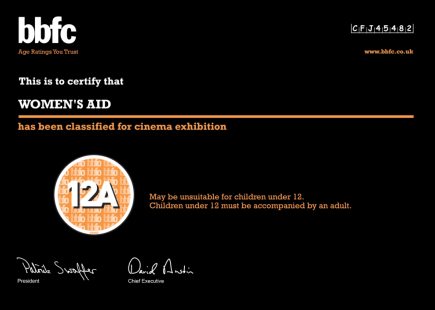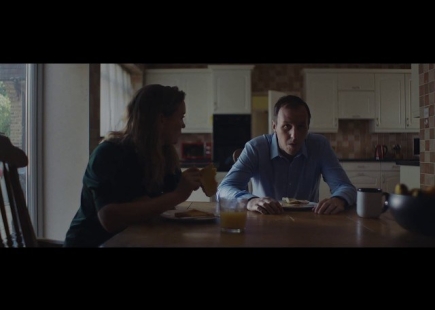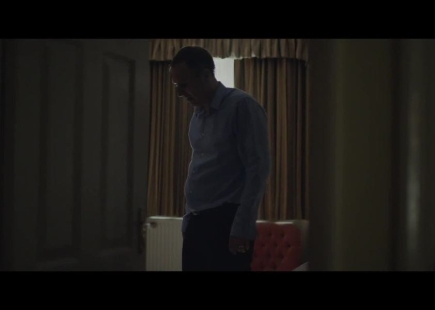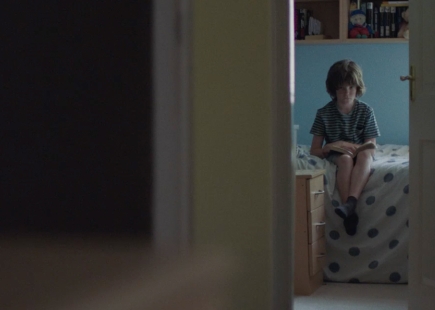Women’s Aid show what it’s like for kids to witness domestic abuse

The Background
An estimated 160,000 children in England are currently living in households where domestic abuse is taking place.
That shocking figure was released by the charity Women’s Aid alongside a film created specifically for cinemas, designed to shine a light on these hidden victims of domestic violence.
The Big Idea
This is a great example of a perfect marriage between creative and medium.
Agency WCRS conceived the idea with the express intention of gaining an 18 certificate. It then worked with the British Board of Film Classification (BBFC) to remove the violent scenes to create a heavily censored advert that could be shown to children.
Allowing the viewer to imagine what has been removed is powerful, as we think back to the shots that have been removed and what it must be like for child victims of domestic violence to live the unedited version.




What They Did
The scenes in the film were apparently based on real-life events and they have been artfully dramatised and crafted by the writer of the ad, David Dearlove.
The man in the film is seen exerting total control over his partner, ruthlessly punishing her for daring to ask whether he might be working late again. The performances are utterly convincing and the cuts to black give the film a deliberately disjointed jump-cut feel that heightens the unease and leaves you relieved you don’t have to witness any more.
The reveal of the little boy watching from his bedroom at the end is heartbreaking. Combined with the copy line it reminds us that many children are not only the target for direct domestic violence, but have to experience it through witnessing the abuse of their loved ones.
The Review
I
think you know by now I like this film a lot.
I was surprised to see some negative comments on YouTube, but generally they were from people who totally missed the point of it (asking how they could see the unedited version, why would anyone want to see that?) or had a nasty anti-women tone. Bear in mind when reviewing yourself, it inevitably loses an edge when not watched in a cinema.
In Hindsight
I
have to admit that although I remember the ad, and could feel the
reactions of the other people in the cinema, I couldn’t remember
the name of the charity afterwards. I did though think about how
domestic violence infects everyone around it.
As a filmmaker I wouldn’t do anything differently and would be very proud by the end result.
If you enjoyed this article, you can subscribe for free to our weekly email alert and receive a regular curation of the best creative campaigns by creatives themselves.
Published on:


